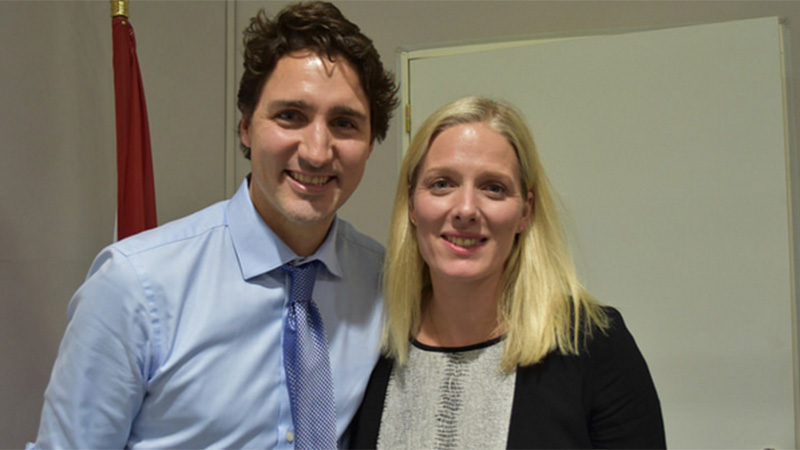Canada will impose a tax on carbon dioxide emissions nationwide from 2018, prime minister Justin Trudeau said on Monday.
Provinces and territories need to set a price of at least C$10 a tonne, rising to $50 by 2022, he told parliament – or decrease emissions at an equivalent pace through a cap-and-trade system.
That will drag sceptical jurisdictions like Saskatchewan and Manitoba along with those already embracing the agenda.
“After decades of inaction and years of missed opportunities, we will finally take real and concrete measures to build a clean economy, create more opportunities for Canadians, and make our world better for our children and our grandchildren,” Trudeau said.
Under previous PM Stephen Harper, Canada withdrew from the Kyoto Protocol as it became clear the country was not meeting its emissions targets.
While the Trudeau administration has not changed the headline goal, it is more serious about meeting it, environment minister Catherine McKenna told Climate Home.
“We have got a target set by the previous government, but the challenge is: they did nothing and emissions rose,” she said in an interview during Climate Week NYC. “We are absolutely committed to taking action on climate change.”
Already, 80% of Canadians live in a jurisdiction that is pricing carbon, she noted, while many businesses support the approach.
“The good companies want this because it is going to position themselves well, it is going to move Canada to a cleaner economy,” she said.
Weekly briefing: Sign up for your essential climate politics update
Quebec has an active carbon market and Ontario is poised to link to it in 2018. British Columbia has a carbon tax and even tar sands producer Alberta is getting in on the act after a change of leadership last year.
Some of the country’s sparsely populated but resource-rich regions are less keen. At the opening of Saskatchewan’s parliament in April, the Throne Speech hit out against “misguided dogma” that threatened energy sector jobs.
Federal opposition spokesman Ed Fast accused Trudeau of using a “sledgehammer” to force regional authorities into line, asking: “What happened to his promised new era of co-operative federalism?”
Trudeau countered that the provinces had flexibility over how they introduced a carbon price.
Profile: Meet the woman who took on Canada’s tar sand barons
Matt Horne of think-tank the Pembina Institute, described the announcement as an “important milestone”.
“An incentive to cut carbon pollution that will grow over time is a big positive for the country from coast to coast,” he said.
“It will help the country’s environment and economy as we compete for the rapidly growing global demand for clean energy.”
The International Emissions Trading Association urged provinces to chose carbon markets over a tax.
“We have seen time and again the effectiveness of cap and trade in delivering real reductions at prices that both drive innovation and ensure that all cost effective measures are implemented by those industries covered by the system,” said the industry group’s Katie Sulllivan.
